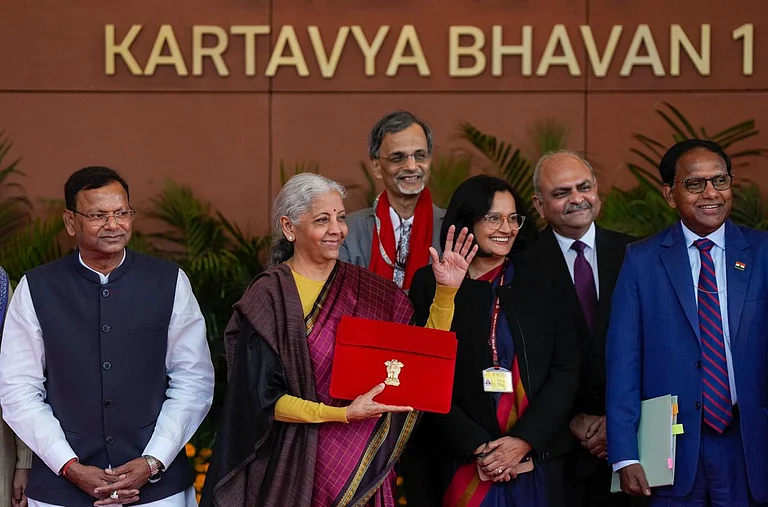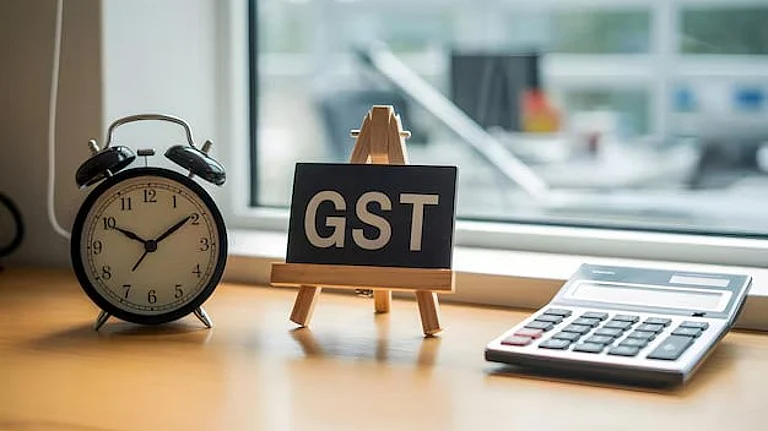Industry body CII on Friday suggested a set of reforms, including fast-tracking all high-demand tax cases above ₹ 100 crore for resolution within a year and rationalising the TDS regime, in its recommendations for the forthcoming Union Budget.
Representatives from the Confederation of Indian Industry (CII) met Revenue Secretary Arvind Shrivastava and submitted a pre-Budget memorandum, detailing suggestions for direct and indirect taxes.
The proposals, covering both direct and indirect taxes, seek to consolidate India's fiscal gains, reduce litigation, and align the country's tax architecture with its ambition of becoming a developed economy under the Viksit Bharat 2047 vision.
The success of GST 2.0, buoyant revenues, and the credibility of the fiscal-consolidation path have demonstrated that prudence and progress can move together, the industry body stated.
CII has also proposed a phased road-map toward Paper-Free Customs by 2028 encompassing e-refunds, e-adjudication and e-appeals.
The industry body pressed for a continued rationalisation of India's tariff structure. The coexistence of multiple exemption notifications and complex schedules, it said, generates uncertainty and disputes. Consolidation into a limited set of mega- notifications would enhance clarity and improve alignment with global value chains.
It said that simplified appeal procedures, such as a single consolidated appeal against multiple Bills of Entry involving common issues along with automatic release of bonds and guarantees once export obligations are fulfilled, would sharply improve the ease of doing business.
Emphasising the role of predictability, CII has proposed a clear multi-year corporate-tax road-map and the removal of minor non-wilful offences from prosecution provisions in both direct and indirect tax laws. Compounding thresholds should be rationalised, and small procedural defaults treated as civil, not criminal, matters. These changes, it stressed, can reinforce voluntary compliance without any revenue loss.
"The next stage of reform," said CII Director-General Chandrajit Banerjee," must ensure that taxation not only raises revenue efficiently but also acts as a catalyst for investment, innovation and competitiveness. The Budget can be a pivot for a truly modern, transparent and globally benchmarked tax regime.
More than five lakh appeals are pending before Commissioners (Appeals), involving almost eighteen lakh crore rupees of disputed demand, CII said.
The industry body has therefore recommended that all high-demand cases above one hundred crore rupees be fast-tracked for resolution within one year through multiple virtual hearings and close CBDT monitoring. Parallel penalty proceedings should remain suspended until the main appeal is resolved, and draft orders should be shared for factual verification before finalisation.
CII has also urged the revival of the Authority for Advance Rulings as an independent, quasi-judicial body headed by retired High Court judges, empowered to deliver binding rulings within six months and open to joint applications from industry associations for sector-wide clarity.
To promote a dispute-preventive taxation system, CII underlined that persistent anomalies in return-processing software at the Central Processing Centre must be addressed through improved protocols ensuring that only apparent mistakes are adjusted automatically and that taxpayers can request virtual hearings when required.
In a move towards institutionalising taxpayer trust, CII suggested that the existing taxpayer charter should be elevated into a Statutory Taxpayer Rights Charter, legally guaranteeing time-bound refunds, faceless assessments and appeals, and accountability for administrative delays. Such an enactment would send a powerful signal that compliant taxpayers are treated with fairness and respect, it argued.
Pitching for the further simplification of the direct-tax regime, CII noted that India's TDS/TCS framework, with more than thirty-five categories and rates ranging from 0.1 % to 30 % has become overly complex, creating reconciliation challenges and liquidity strain. It has therefore proposed a reduction to two or three broad categories, exempting transactions between GST-registered entities since these are already captured digitally.
CII has also suggested clarificatory circulars confirming that no TDS is required on the GST component of composite payments.
It further called for modernisation of customs systems and indirect taxes, welcoming the recent Master exemption Notification on Imports and suggested building upon it through a one-time dispute-resolution scheme, longer validity for advance rulings, and complete digitalisation of clearance systems.
Asserting that the overarching principle guiding India's tax reforms must be to simplify, stabilise, and digitise, CII said, a modern system -- anchored in technology and trust -- will expand the tax base, improve compliance, and create fiscal room for productive capital investment.
"Tax simplification is not a concession; it is an investment in governance efficiency," remarked Banerjee.
He further added, "CII's proposals are not about cutting taxes, but they are about cutting friction. By ensuring predictability, speed, and respect for the taxpayer, the Government can reinforce India's position as a high-growth, rule-based economy and make tax policy a true driver of Viksit Bharat 2047.
CII emphasised that these reforms would generate immediate gains in trust, compliance, and investment sentiment. Time-bound dispute resolution, a simplified TDS regime, digitised customs systems, and a statutory taxpayers' charter together, CII said, could transform India's fiscal landscape into one that is transparent, growth-friendly, and globally bench-marked.

































